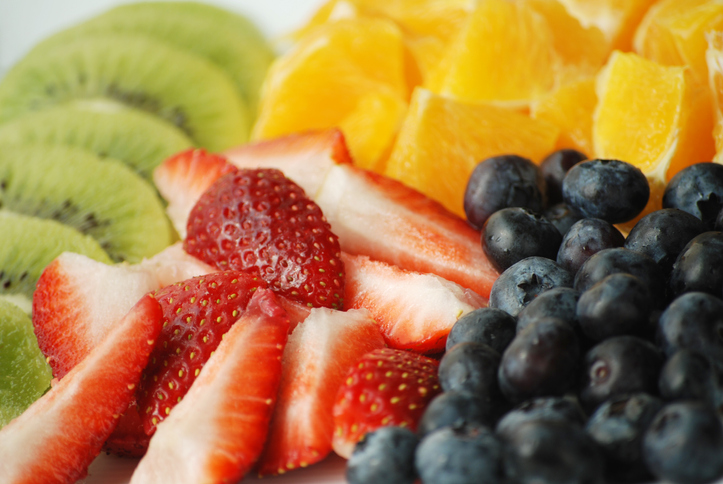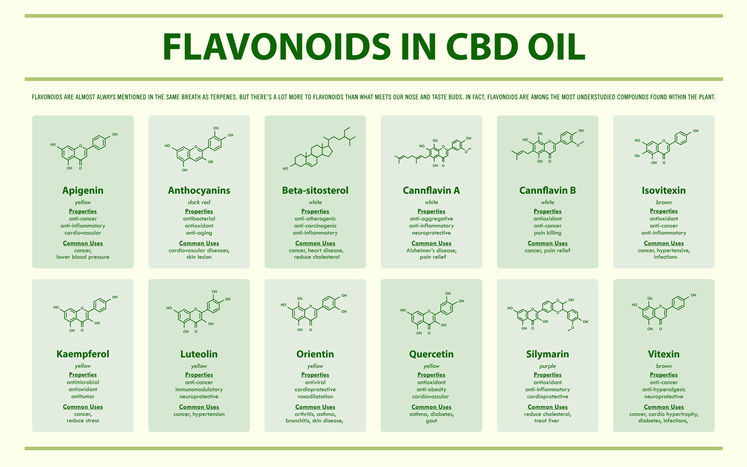Flavonoids! A Good Friend for Protecting Your Cognitive Heath

By: Joy Stephenson-Laws, J.D., Founder
There are many advantages to following a primarily plant-based diet such as lots of nutritional and other health benefits. This approach to eating eliminates many processed foods in the American diet, like baked goods, as well as many ingredients and additives which are basically not good for us. We also tend to get a greater number of important micronutrients since plant foods are usually very nutrient dense.
Another huge benefit of a plant-based diet is that it tends to be very low in saturated fat and cholesterol and high in dietary fiber. This is great for helping prevent cancer and metabolic issues such as obesity and hypertension. People following such a diet also report having more energy, sleeping better and not getting sick as often.

Flavonoids and cognitive health
If all that wasn’t enough reason to include more fruits and vegetables in your diet, it turns out that they also may play an important role in helping protect our cognitive health as we age. Researchers have found that flavonoids – phytochemicals commonly found in plant foods that help give strawberries, blueberries, peppers and other plant products their brilliant colors – could slow the process of cognitive decline. For most people, this decline begins in their 20s or 30s.
Over the course of the study, which followed participants for 20 years, people who ate about 600 milligrams of flavonoids a day had a 20 percent lower risk of cognitive decline than those who ate only 150 milligrams a day. To give you some context, an apple has about 113 milligrams of flavonoids while a half cup of strawberries has about 180 milligrams.
Researchers also looked at individual flavonoids (there are six different types), and found that flavones, which are in some spices as well as orange vegetables and fruits, were associated with a 38 percent lower risk of cognitive decline. Another flavonoid, anthocyanins, were associated with a 24 percent reduced risk. You can find them in blueberries, cherries and blackberries.
Other plant products that are rich in flavonoids are: oranges, celery, pears, grapefruit, lemons, grapes, onions, tea, cocoa, spinach, kale, legumes, broccoli, thyme, radishes, plums, pecans, and pistachios. More than 20 flavonoids have been identified in cannabis sativa. Researchers also found that flavonoids help protect against cognitive decline even if they are a recent addition to your routine, so you can start including them today and still reap benefits!
If you are wondering how many flavonoids you need to be eating in a day, the good news is that the recommended five to nine servings of fruits and vegetables should give you the flavonoids your body needs. But you should aim for getting the widest variety of “colors” as possible throughout the day since different foods may contain different flavonoids. If your plate looks like a kaleidoscope of color, you’re on the right path.
Other brain healthy foods?
Also keep in mind that while flavonoids seem to be important for cognitive health, they can’t do it alone. You also need to be sure to include other “brain healthy” foods in your diet. These include:
- Fish– Fish provides you with protein and omega-3 fatty acids. These nutrients improve mental performance.
- Nuts and seeds– These little guys are full of essential fatty acids, protein and amino acids. They stimulate the pituitary gland to release a growth hormone, which you need throughout your life, but which unfortunately is not produced in sufficient amounts after you turn 35.
- Veggies– Broccoli, cauliflower and Brussels sprouts are high in choline, a vital nutrient for memory and brain health.
- Vitamins– Consuming vitamin E, vitamin C and vitamin B12 can lower your risk for developing Alzheimer’s disease.
- DHA– DHA is the most common omega-3 fatty acid in the brain, but your body is not good at making it, so you need to get it mostly from dietary sources. It is crucial for the growth and development of the brain in infants and is required for the adult brain to work properly. It improves learning ability and has a positive effect on diseases such as diabetes and some cancers. In fact, a DHA deficiency is associated with depression, ADHD and cystic fibrosis as well.
- Silica – Research suggests that silica reduces aluminum build-up in the brain, which researchers have potentially linked to Alzheimer’s So, the elderly and others at risk for this disease may benefit from silica supplementation, especially since silica levels in your body tend to decrease with age. The most popular nutritional sources of silica are apples, cereals, raw cabbage, peanuts, carrots, onions, cucumber, pumpkin, honey, fish, unrefined grains, oats, almonds and oranges.
And, it should go without saying that you also need to make healthy lifestyle choices. These also play an important role in protecting your cognitive health. They include:
- Moderate exercise with spurts of high intensity on a regular basis – at least four to five times a week is best.
- Regular sleep patterns and overall adequate and restful sleep helps your brain to recharge. It also positively influences hormones.
- Avoiding junk food and diets high in saturated fats, simple carbohydrates, trans fat, artificial sweeteners like aspartame, added sugar, syrups and any grains but 100 percent whole grains.
- Limiting alcohol consumption and staying away from recreational drugs.
- Managing stress and external stimuli like leaving a TV on while you are sleeping.
Other Benefit of Flavonoids
Given the number of flavonoid types and the number of flavonoids identified to date, it is not surprising they could have a wide variety of health benefits beyond helping to slow down cognitive decline. For example, they may have a positive effect on improving insulin sensitivity and blood sugar response, which can help reduce your risk of cardiovascular disease and diabetes. They may also help manage blood pressure, lower the risk of heart attack and stroke.
Enjoy your healthy life!
The pH professional health care team includes recognized experts from a variety of health care and related disciplines, including physicians, attorneys, nutritionists, nurses and certified fitness instructors. This team also includes the members of the pH Medical Advisory Board, which constantly monitors all pH programs, products and services. To learn more about the pH Medical Advisory Board, click here.







